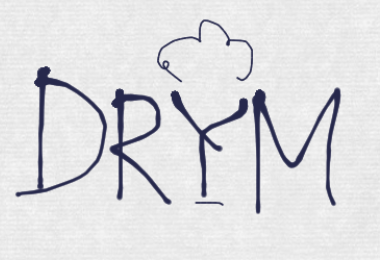Drym.org (pronounced “dream”) is an online portal for organizing activities around and raising awareness of identity architecture, Attribution Based Economics (ABE), and related work.
Join the Mailing List
ABE Events
Learn More
Attribution Based Economics
- Maintaining the Maintainers
- The original talk introducing ABE at EmacsConf 2022.
- This talk contrasts the new system with property-oriented systems such as capitalism, foreshadowing a new and more robust legal basis that takes us away from the outdated and subversive device of copyright. It also introduces some software prototypes that are currently being developed to implement ABE in practice for open source software projects.
- We Can All Have the Best Things
- Presents the twin insights at the heart of the new economic theory in terms accessible to the layperson: (1) the dialectical nature of economic value, and (2) the nuanced origin of money in terms of the creation of this kind of value.
- This talk shows how these twin insights resolve many seemingly intractable, large scale problems in today’s economic systems.
- Qi: A Day in the Life (or, Redeeming Open Source with ABE)
- Shows how ABE in the context of open source software provides a new alternative to traditional methods of generating economic value, including rigid bureaucracy-oriented corporations, nonprofits, and academia, and how this new alternative, by leveraging insights from the Gayanashagowa, provides wholesome and robust organization practices that allow more efficient and effective value generation than any traditional model.
- The talk uses the example of ABE deployment in Qi, an innovative new programming language in the Racket ecosystem, as an early case study of ABE in practice.
- ABE Foundational Documentation
- Draft founding documents for the new economic system, including a constitution exhibiting checks and balances to ensure the appropriate incentives, a novel attribution model explaining the distinct treatment of labor, capital and ideas for the purposes of attribution of sources of value, and a novel and complex financial model exhibiting fairness and dynamics that are capable of adapting to the creation of new value and the investment of money at different stages of a project.
Projects Using ABE Today
- Symex.el
- A package for structural code editing in Emacs, leveraging a tree-oriented Domain Specific Language to power novel and expressive editing features accessible via a customizable modal interface.
- Qi
- An innovative flow-oriented programming language in the Racket ecosystem that’s simple, expressive and easy to embed anywhere in programs that may be written in other languages (such as Racket). With an optimizing compiler tailored for functional applications, Qi is also blazing fast in many idiomatic use cases.
- Old Abe
- A robust automated accounting system that implements the ABE financial model, seamlessly integrating it with standard project workflows, including Continuous Integration (CI) pipelines.
- Jewel
- An environment for prototyping decentralized and secure peer-to-peer networking technologies. Jewel is intended to demonstrate that research can be done out in the open for maximum public benefit while also maximizing fairness to inventors, without the use of copyright or other outmoded, ownership-oriented legal devices such as patents.
- A blog post introducing this.
And many more that are still in early stages of development! If you would like to adopt ABE for your project, that’s fantastic, and please get in touch.
Identity Architecture
- Identity Architecture of Living Systems
- The original paper introducing identity architecture, which provides the theoretical foundation for the economic dynamics engendered by Attribution Based Economics. The work on identity architecture is very broad, covering topics like epistemology and mathematical foundations, which are not directly relevant for economics.
